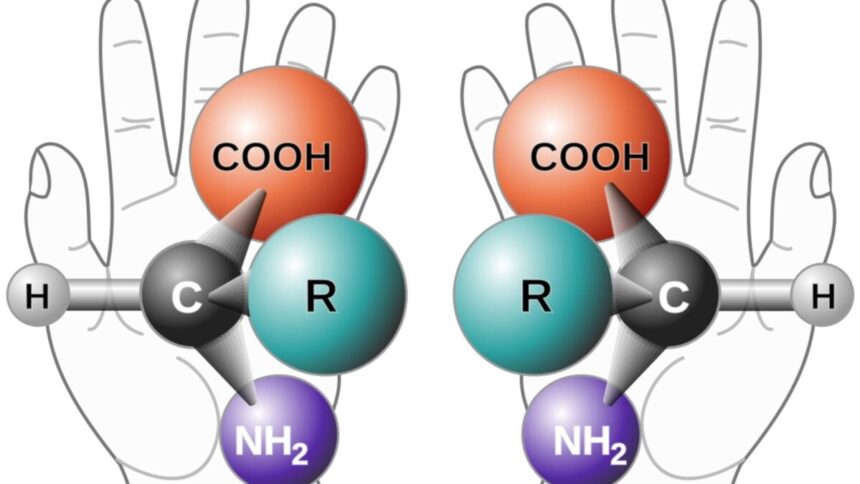The prospect of creating “mirror life”—synthetic cells made from molecules that are mirror images of those found in nature—remains completely hypothetical. Still, the potential consequences are so dire that experts from around the world are gathering to discuss how to prevent the worst-case scenario.
This week, scientists, engineers, policymakers, and other stakeholders will convene in Manchester, U.K., for Engineering and Safeguarding Synthetic Life 2025. This annual international conference explores the risks, challenges, and opportunities in researching and building synthetic life. Mirror life is emerging as a topic worthy of substantial discussion, as many scientists warn that creating such cells could pose unprecedented and irreversible risks to human health and the environment.
“Pretty much everybody agrees” that mirror-image cells would be “a bad thing,” John Glass, a synthetic biologist at the J. Craig Venter Institute, told Nature. At the same time, some scientists argue that mirror-life research offers potential benefits that shouldn’t be ignored. The question is: How should experts regulate such research to maximize those benefits while minimizing risk?
Why study mirror life?
Most biological molecules that make up life on Earth—including all proteins, DNA, and RNA—point either left or right. These molecules are “chiral,” meaning they cannot be superimposed on their mirror image. Just as your right glove only fits on your right hand, chiral molecules can only interact with other molecules of compatible chirality.
Mirror-image cells would be built from synthetic molecules with the opposite chirality of those found in nature. Whereas DNA is right-handed, mirror DNA would be left-handed, for example. Scientists are still decades away from synthesizing a complete mirror-image cell, but in recent years, they have created some mirror-image biomolecules, such as chirally inverted enzymes that can replicate and transcribe mirror-image DNA and RNA.
One of the main incentives for creating mirror-image cells is that they could help scientists unravel how chirality emerged in nature, but the building blocks for these cells also hold promise for bioengineering and therapeutic drug discovery. Researchers believe the body’s enzymes and immune system would not readily recognize mirror-image biomolecules, allowing medicines made from them to remain more stable in the bloodstream. The FDA has already approved one such drug to treat chronic kidney disease.
What are the risks?
Even these early advancements worry some scientists. The same properties that make these synthetic biomolecules effective as therapeutics would likely allow mirror-image cells to spread uncontrollably throughout the body or nature.
With the ability to evade immune systems, medicines, predation, and viral infection, experts have warned that mirror-image bacteria could gradually take over the environment. Scientists can only theorize about the consequences of this worst-case scenario, but there is strong evidence to suggest that mirror-image bacteria could catastrophically destabilize the environment and pose significant risks to human health.
Some believe these risks warrant abandoning the prospect of creating mirror life. Others argue that well-placed restrictions and guidelines could allow research to progress without posing a threat to life as we know it. The question of how to move forward—if at all—will likely stir up a spirited debate at this week’s conference in Manchester.
Read the full article here












